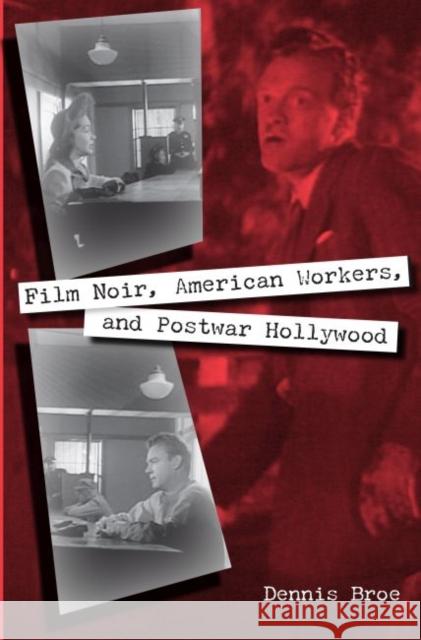Film Noir, American Workers, and Postwar Hollywood » książka
Film Noir, American Workers, and Postwar Hollywood
ISBN-13: 9780813035499 / Angielski / Miękka / 2010 / 224 str.
Film Noir, American Workers, and Postwar Hollywood
ISBN-13: 9780813035499 / Angielski / Miękka / 2010 / 224 str.
(netto: 97,31 VAT: 5%)
Najniższa cena z 30 dni: 101,97
ok. 22 dni roboczych.
Darmowa dostawa!
"With keen insight and a deep appreciation of the politics of film noir, Broe has broken new ground in the interpretation of cinema itself. With this book film noir has found its most astute and informed critic."--Gerald Horne, author of The Final Victim of the Blacklist: John Howard Lawson, Dean of the Hollywood Ten"Reminds the reader that class, while often submerged, was important to postwar American society and culture. The classic noir films of the period provided a vivid commentary on class in America."--Richard Greenwald, Drew UniversityFilm noir, which flourished in 1940s and 50s, reflected the struggles and sentiments of postwar America. Dennis Broe contends that the genre, with its emphasis on dark subject matter, paralleled the class conflict in labor and union movements that dominated the period.By following the evolution of film noir during the years following World War II, Broe illustrates how the noir figure represents labor as a whole. In the 1940s, both radicalized union members and protagonists of noir films were hunted and pursued by the law. Later, as labor unions achieve broad acceptance and respectability, the central noir figure shifts from fugitive criminal to law-abiding cop.Expanding his investigation into the Cold War and post-9/11 America, Broe extends his analysis of the ways film noir is intimately connected to labor history. A brilliant, interdisciplinary examination, this is a work that will appeal to a broad spectrum of readers."











